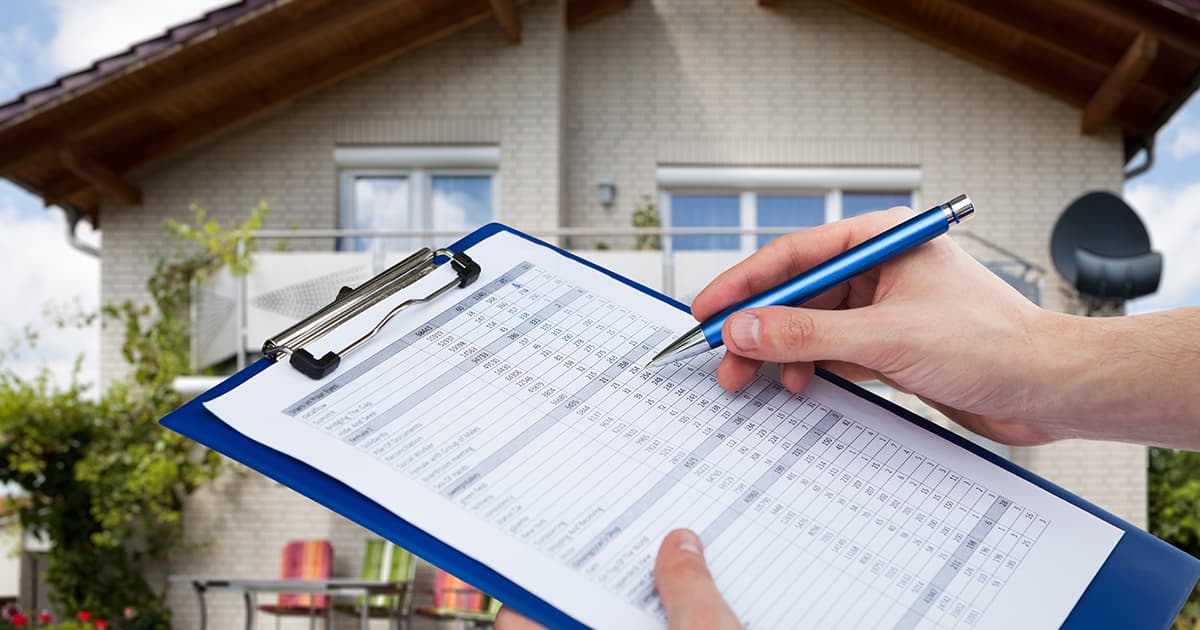What to Expect from A Home Inspection

A home inspection is one of the final steps in making an offer on your new, potential home. A home inspection safeguards buyers and provides invaluable insights into the condition of the home you want to buy.
The purpose of a home inspection is to provide potential homebuyers with a comprehensive evaluation of the property. The results of the home inspection can be a determining factor in going ahead with the purchase.
Why you need a home inspection
Without a home inspection, you could be buying a house with serious problems and defects. You may not be successful in a legal claim or lawsuit against the former owners because of a lack of due diligence on your part.
Home inspections are conducted by certified professionals who thoroughly examine various aspects of the home, including its structural integrity, and such things as the condition of its roof, wiring, plumbing, furnace, and windows.
Understanding a home inspection:
Inspections are usually requested by the prospective buyers and that’s who will be responsible for paying the inspector’s bill.
Ordering an inspection is usually one of the final steps of making an offer on a home and should be done one to two weeks before submitting your offer. Costs vary but are usually under $700.
A home inspection typically takes a few hours and will take a longer amount of time with larger properties. In most cases, it will be completed in a single day and you’ll receive a written report in a couple of business days.
Based on this report, you’ll know whether any features of your house are up to date and will need repairs soon. This knowledge is a must when deciding whether to move forward with the purchase of a property and its purchase price.
Here’s what a home inspection will do:
Identify structural issues:
Home inspectors assess the structural components of the property, including the foundation, walls, roof, and support structures. They look for signs of damage, deterioration, or structural weaknesses that could affect the integrity of the building.
Detect safety hazards:
Inspectors inspect electrical systems, plumbing, heating, ventilation, and air conditioning (HVAC) systems to ensure they are installed and functioning safely. They identify potential fire hazards, electrical wiring problems, gas leaks, and other safety concerns that could pose risks to occupants.
Assess the condition of major systems:
Home inspections evaluate the condition and functionality of major systems and components within the home, such as appliances, plumbing fixtures, HVAC systems, and water heaters. Inspectors identify any issues or defects that may require repair or replacement.
Provide insight for negotiation:
The findings of a home inspection can provide valuable information for negotiation purposes. Buyers may use the inspection report to request repairs or negotiate the purchase price based on the estimated cost of addressing any issues identified during the inspection.
Educate homebuyers:
Home inspections help educate home buyers, helping them better understand the maintenance needs and potential challenges associated with owning a particular property. Inspectors often provide recommendations for ongoing maintenance and repairs to help buyers make informed decisions.
Look for home inspectors who are certified by reputable organizations such as the International Association of Certified Home Inspectors (InterNACHI), or the Canadian Association of Home and Property Inspectors (CAHPI). These certifications indicate that the inspector has undergone rigorous training and adheres to professional standards.
Before hiring a home inspector, ask about their inspection process and what areas of the property they will evaluate. A reliable inspector should provide a detailed explanation of their methodology and ensure that they cover all essential components of the home, including structural elements, electrical systems, plumbing, HVAC systems, and appliances.
Finally, ensure that the home inspector carries professional liability insurance (errors and omissions insurance) to protect you in case of errors or omissions during the inspection process. Request proof of insurance coverage before hiring the inspector.
Home insurance tips for first-time buyers:
In addition to a home inspection, securing adequate home insurance coverage is essential for first-time homebuyers in Canada. Here are some tips to consider:
1. Understand your coverage needs:
Assess your insurance needs based on factors such as the location of the property, its replacement value, and any additional coverage options required.
2. Shop around for quotes:
Obtain quotes from multiple insurance providers to compare coverage options, premiums, deductibles, and policy terms. Look for insurers with a solid reputation and reliable customer service. An insurance broker can help you find the best price for your needs without skipping any important coverages.
Learn more about what an insurance broker does
3. Bundle car and home insurance to save:
Consider bundling your home insurance with other policies, such as auto insurance, to potentially qualify for discounts and reduce overall premiums. This is a huge opportunity for savings, so don’t miss out!
Learn more about how to bundle car and home insurance with Webrater
4. Review policy exclusions and limits:
Carefully review the terms and conditions of your home insurance policy, including any exclusions and coverage limits, to ensure you understand what is and isn't covered. Let an insurance advisor know if you have any concerns.
5. Consider additional coverage options:
Depending on your needs, home location, and budget, consider adding optional coverage such as earthquake or flood insurance, sewer backup coverage, or additional liability protection.
Learn more about covering your property against local hazards
6. Maintain good home maintenance practices:
Regularly maintain your property to prevent damage and reduce the risk of insurance claims. This includes tasks such as cleaning gutters, inspecting the roof, and addressing any maintenance issues promptly.
When you understand the importance of both home inspections and insurance, first-time buyers can navigate the complexities of homeownership with confidence and security.



